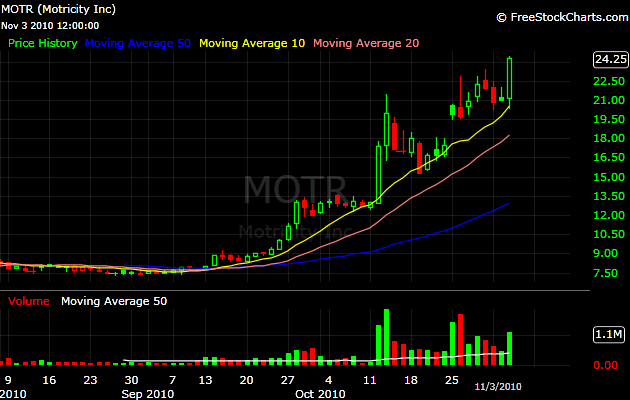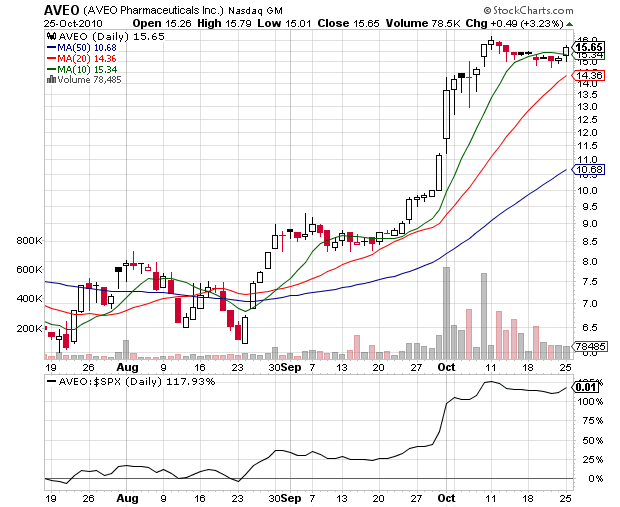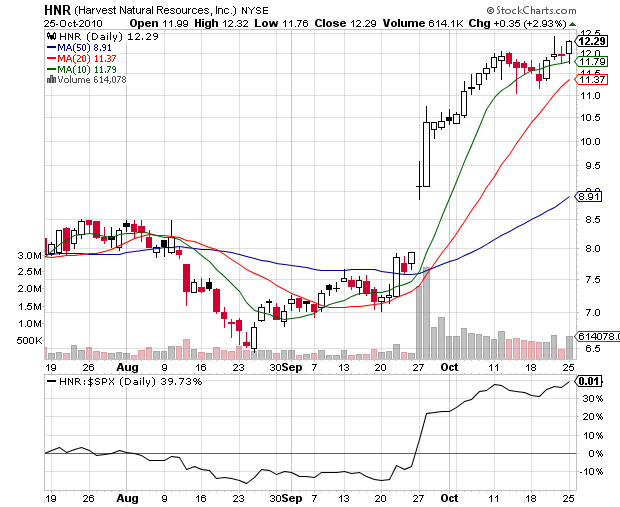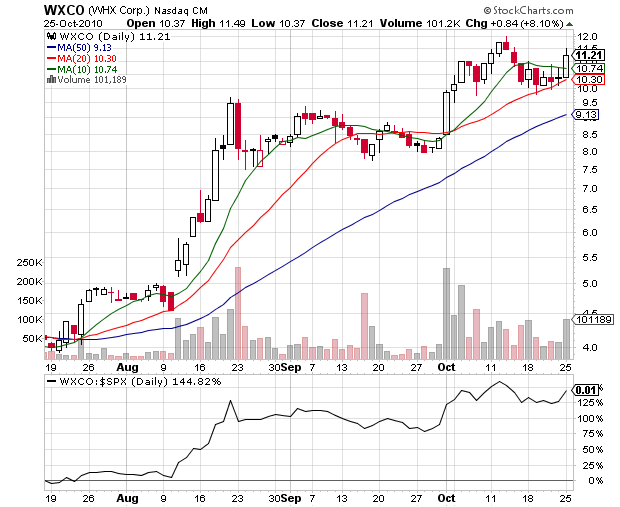It is not a secret that many of the swing traders look for essentially the same type of setup: a few days to a few months of a price uptrend, followed by tight range consolidation and a breakout from this consolidation. How is it possible that everyone is looking for the same patterns, everyone is trading the same stocks and these patterns continues to work? (at least for some of the market participants)
Let’s for a moment forget about all the fundamental catalysts that impact market participants’ perceptions and therefore action and focus only on the technical aspect of the setup. What happens for this bullish setup to work? There is an uptrend and then the stock trades in the upper range of this uptrend, revealing institutional interest. Institutions are not willing to buy the breakout just yet, but they are quietly accumulating every little dip, essentially supporting the stock above certain price level. Such stocks appear on the screens of many swing traders.
Which are the different groups of market participants that make the existence of this setup possible:
1) Some traders will enter in anticipation of a breakout. The logic is simple. If the stock breaks out and runs quickly, I might not be able to get in a good risk/reward trade. I should get in now. If I am wrong, I will get stopped below the lower range of the consolidation. If I am right, the potential reward will be 3-4 times bigger. I could be right in only 40% of my trades and still end up with a profitable year. It makes perfect sense. The drawback of this approach is that you don’t know when and if the breakout is going to happen, essentially locking your capital in an unproductive vehicle. Also, in many cases, the stock will dip slightly below the obvious support level only to shake out some weak hands and it will quickly recover back. So what do you do in such situation? Not following your stop loss rules forms bad habits.
2) As the stock breaks from its consolidation, a new group of market participants enter. Robots and humans act on the signal and pile in. If the demand overwhelms the supply, the stock will quickly soar and each point higher will attract new fresh capital. The drawback of this approach is that you might not be quick enough to enter when the breakout is happening. Also the breakout might be a fakeout, as the stock quickly reverses back to the previous range. It is not ready to breakout just yet.
3) A third group of participants opens positions only after the stock is up 3 – 5 % above the breakout level. Such percentage gain is considered a reliable signal that the stock is moving from the accumulation into the mark-up mode. The drawback of this approach is that you enter relatively far from the consolidation, which means that your stop is further away and therefore your position is smaller. The new capital boosts the volume and sends the price even higher
4) Short-sellers finally give up on the stock and start to cover, further fueling the uptrend and providing liquidity for the early buyers. Market participants that accumulated in the base of the stock take full advantage of the situation and gradually distribute their shares at this level. At some point, the supply overwhelms the demand and the stock turns parabolic.
If everyone is looking and trading the same stocks, why so few people are actually consistently profitable?
Two main reasons:
– All setups have different success rate in the different stages of the market. Those who understand market structure, know that they should stay on the sidelines when the current market environment is not favorable for their market approach. Sit and wait patiently. Most market participants are looking for instant gratification and a 100% success rate. When they lose money a few times in a row, they just jump on the next “big” thing; never spending enough time to specialize in one particular setup.
-Most market participants are not willing to cut their losses quickly when a trade goes against them; If there was only one thing you should learn about consistent profitability, it is to cut your losses short. I know, it sounds overly simplistic, but it is true. It is easy to comprehend the concept, it is so hard to apply it in reality. The psychological reasons behind this phenomenon are deeply ingrained in the human brain and I will address them in another post.



